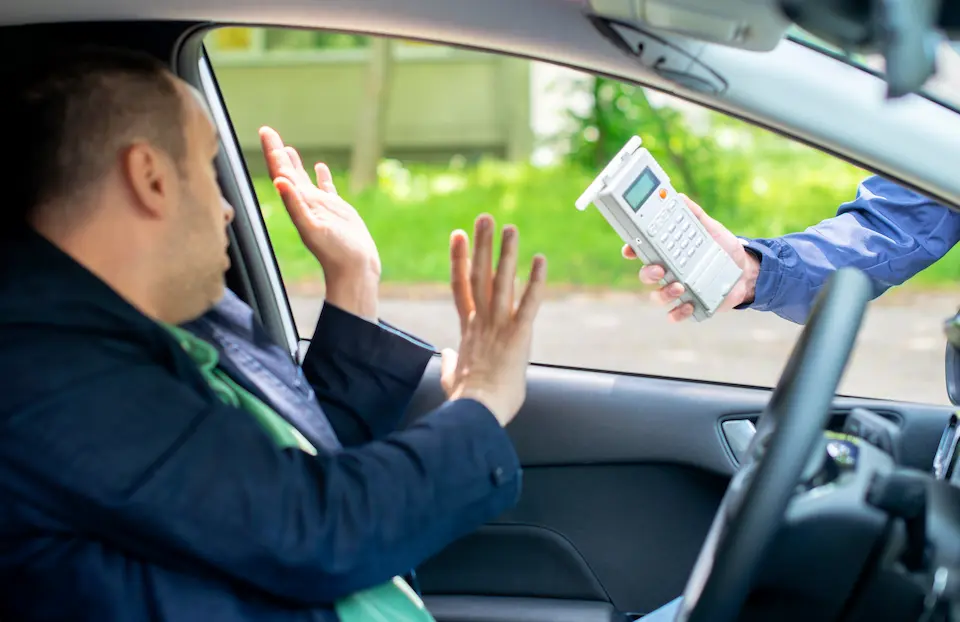Driving Under The Influence In North Carolina You may find yourself facing a driving while…
Driving while intoxicated is a serious offense in North Carolina that can come with strict penalties. If you are driving in North Carolina, you need to be aware of the laws that can impact you as well as your rights as a driver, if you are arrested for DWI. If you find yourself in this situation, you are required to submit to chemical testing. If you refuse to do so, you can face serious consequences.
As we look at these consequences, we'll also explore the significance of blood alcohol testing, what rights you have, and how the Raleigh DWI Lawyer at The Law Office of J.M. Kotzker can help to defend you.

Understanding DWI Arrests in North Carolina
DWI arrests in North Carolina are not taken likely. You may face getting your license suspended for 30 days just for being charged. After an arrest, a pre-trial limited driving privilege may be obtained in certain circumstances.
Conviction of DWI in North Carolina can result in penalties, fines, jail time, and license suspension, among other consequences. The consequences you may face will depend on the circumstances of your cases as well as any aggravating factors, your blood alcohol level, and any previous DWI convictions.
The Significance of Breath, Chemical, and Blood Tests
Breath, chemical, and blood tests can all determine whether a driver was legally intoxicated at the time of arrest.
Breath Tests
Breath tests are commonly measured using a portable breathalyzer. This measures the BAC by testing for alcohol on a person's breath. A formula is then used to determine the amount of alcohol concentrated in a person's blood.
Blood Tests
A blood sample can determine a person's blood alcohol level. A blood test is a quick way to determine BAC because alcohol is quickly absorbed into the blood.
Urine Tests
Urine tests can also determine BAC. It uses the amount of alcohol found in the urine to determine overall blood alcohol concentration.
Refusing a Breath, Chemical, or Blood Test
If a police officer pulls you over and suspects that you are intoxicated, the officer will likely administer field sobriety tests and request a breathalyzer test. If you refuse, you may have your license suspended and could even face jail time.
Refusing to take a breathalyzer, post-arrest blood test, or urine test can all be used against you if your case goes to court. Other evidence collected at the scene including witness testimony or the results of a field sobriety test can be damaging. When you combine these factors along with refusing tests, you can have an uphill battle when it comes to fighting your DWI charges.
Your Rights during a DWI Arrest
During a DWI arrest, you do have rights. The arresting office must advise you of your rights and the consequences if you choose to exercise these rights.
You do have the right to refuse to test, but doing so will result in having your license suspended. If your test shows a blood alcohol content of .08% or higher, your license will also be revoked for at least 30 days.
You have the right to contact an attorney and have a witness present during testing. But, doing so must not delay your testing for more than 30 minutes.
You have the right to get an independent alcohol test when you are released.
NC Implied Consent Laws
While you have the right to refuse to test, North Carolina's implied consent laws require all drivers who are lawfully arrested for DWI to submit to chemical testing to determine their BAC. Anyone who defies this law will be advised of the rights listed above and then be asked to sign a form confirming that he or she was advised and understood the consequences.

Potential Consequences of Refusing Tests
It's important to understand that when a person refuses to test, they can face harsh consequences.
License Suspension and Limited Driving Privileges if Breath Test is Refused
If a breath test is refused, the driver's license will be revoked for 30 days. An additional one-year license revocation is imposed after an opportunity for a hearing. Even if the driver is found not guilty of DWI in criminal court, the one-year revocation for refusing chemical testing will remain in effect.
After completing six months of a refusal suspension, the driver can petition the court for a limited driving privilege hearing. This can allow for driving to and from places like work.
It's important to note that although there are no criminal penalties for chemical test refusals, the fact that the driver refused to test is usually admissible in criminal court and can work towards the prosecution's case.
Importance of Legal Representation from a North Carolina DWI Lawyer
If you refuse to submit to testing for alcohol, you'll want to have a defense attorney on your side. These types of cases can become complicated, so you'll want to have someone on your side who understands the law and can fight for you.
Possible Defense Strategies of Blood, Breath, or Chemical Test Refusals
Some defense strategies for blood, breath, or chemical tests can include being able to prove that the police officer did not give you an option for a blood or breath test. Some people may argue that while the police wanted them to take the breath test, they preferred a blood test, but were denied.
Another defense that can be used can include that the law enforcement officer did not want to go to the hospital for testing, so they said there was a refusal instead. For this to be viable, you would need witness or bodycam evidence.
These are just a couple of strategies that may be able to be used, but since each case is unique, it's best to have legal representation if you become a person suspected of DWI in North Carolina.
Looking For Representation after Refusing a Preliminary Breath Test? Contact the DWI Attorney at The Law Office Of J.M. Kotzker
At the Law Office of J.M. Kotzker, we can provide you with the legal representation, advice, and guidance you need when facing DWI charges. We can explain the DWI charge against you and prepare a defense to help your case. Call us today at (919) 439-5104 to schedule a consultation or contact us online.
